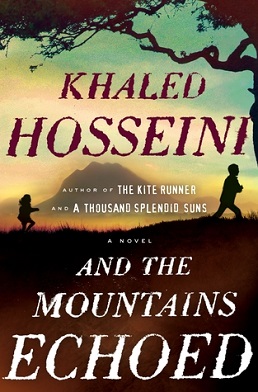After 22 hours of traveling and getting settled back at home yesterday, I finally succumbed to fatigue. In my own bed, in my husband’s arms again, weary shoulders sank into pillow-top mattress, and scratchy eyes dried by airplane air gently closed the book of my latest France stories. I could have gone to bed earlier, saved dirty laundry to wash today, rummaged suitcase corners today for presents I’d brought back for my honey—but I savored being able to rest chin in hand, tilt my head, and say with starry-eyed wonder, “I was in Paris this morning,”—which I would not be able to say today. Although Paris itself was not dreamy on this trip, it felt dreamy to know I’d been there just that morning. Maybe, too, I felt awe at air-travel technology that enables people to flit about the planet like birds.
 Technology aside, travel yesterday
was the most difficult I’ve ever experienced. At one point, I slumped, sobbing
onto a bench in the security area of Charles De Gaulle Airport. I’ll spare you
the details of taxi, train, and airport inefficiencies and human selfishness
and surliness. A series of ordeals rendered what should have been about an hour’s
trip to my plane gate into a four-hour nightmare. The experience will change
future travel for me; I never want to fly home from CDG Airport again.
Technology aside, travel yesterday
was the most difficult I’ve ever experienced. At one point, I slumped, sobbing
onto a bench in the security area of Charles De Gaulle Airport. I’ll spare you
the details of taxi, train, and airport inefficiencies and human selfishness
and surliness. A series of ordeals rendered what should have been about an hour’s
trip to my plane gate into a four-hour nightmare. The experience will change
future travel for me; I never want to fly home from CDG Airport again. But what I most want to remember in my I was in Paris this morning dream is my French friend who spent frustrating hours of her vacation trying in vain to schedule a taxi for me; the many helpful security and hospitality personnel at train stations and the airport; and the friendly Americans on the plane who told their Paris horror stories with humor and c’est la vie shrugs. And the compassionate young woman from Houston who put her arms around me on that bench and commiserated with my tears. She and her husband had shared the same nightmare, except perhaps for the indignities I suffered at the hands of airport security. (Their experience had made them decide never to return to France. I love France and don’t know if I could reject the country as they did—just that I will find another airport to fly home from.) Anyway, I want to remember people who shone light into the darkness of yesterday in Paris.
Today I peeked out at the day
through a one-inch slit in horizontal blinds. Yesterday I greeted the day by
flinging open a six-foot-tall window. Today sunshine envelops the house.
Yesterday I craned my neck up to see sky between six- to ten-story-tall
buildings. Today I am surrounded by lush velvety green lawn and artfully
arranged colors—white anemones bobbing in the breeze, purple and yellow pansies
playing among pink-striped phlox, and white lilacs perfuming the patio. Yesterday
I strolled down a long, narrow, gray-cobblestoned courtyard that our and many
neighbors’ doors opened onto. Blue verbena mounded above clay pots on our
windowsill, and many green plants reached up from their pots for the light.
Benches and sculptures, weathered and worn, lined the courtyard. Today a green
garden hose curls on the patio. Yesterday a few plastic watering cans with
skinny, curved spouts crouched in the jungle of greenery. Gardens, whether horizontal or vertical, are everywhere.
Yesterday I ate a fat, almost-round
egg that still had a tiny chicken feather stuck on it. Today I will eat what Americans
call a large egg, half the size of yesterday’s egg, that tapers at one end.
Yesterday I could still taste fresh strawberry jam my friend made from tender,
sweet berries she picked herself near her home. Today I ate strawberries from
2,000 miles away that are mostly hard white pulp inside. Yesterday I ate store-bought
broccoli so sweet, it reminded me of broccoli I’ve grown myself. Today I will
eat store-bought broccoli whose satisfaction is only a vague vitamin awareness,
no need to linger along the taste buds. Today, however, I can also gaze out my
window and see a strawberry patch that I planted because of previous enjoyment
of French food’s pure freshness. Many years ago I wanted to “bring France home
with me,” and my potager, or kitchen
garden, has brought much flavor to my life, and not just to my taste buds. And today at breakfast, I'll enjoy the homemade jam my friend sent me home with.

 Yesterday I had little knowledge of
current wars, financial crises, and political intrigues. Although my friend
followed TV news during our trip, I understood little (okay, none) of the
commentary. My main French TV pleasures were a pastry-chef reality show
competition and a music show. Today I will go outside and bring in the
orange-plastic-sleeved roll on the sidewalk and get caught up with the rest of
the world. Then I’ll weed the garden.
Yesterday I had little knowledge of
current wars, financial crises, and political intrigues. Although my friend
followed TV news during our trip, I understood little (okay, none) of the
commentary. My main French TV pleasures were a pastry-chef reality show
competition and a music show. Today I will go outside and bring in the
orange-plastic-sleeved roll on the sidewalk and get caught up with the rest of
the world. Then I’ll weed the garden.
Yesterday I was in Paris.









